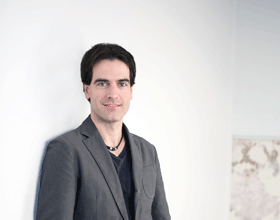
The ways in which young people use their smartphones may be monitored and studied to identify those in need of psychological help or those most likely to respond to mental interventions.
Research led by Orygen, the National Centre of Excellence in Youth Mental Health, and funded through the Victorian Government’s Medical Research Acceleration Fund, will develop technology that is capable of analysing the data, movement and communication of young people on their mobile phones to gauge the state of their mental health.
This so-called ‘digital phenotyping’ is a new approach to measuring behaviour using smartphone sensors, keyboard interactions and various features of voice and speech.
Associate Professor Mario Alvarez-Jimenez, who is leading the Orygen team behind the research, said technologies such as digital phenotyping could help overcome the limitations of traditional therapies “by providing personalised support in real time and in real life, in between therapy sessions”.
Building on Orygen’s moderated online social therapy system (MOST), Associate Professor Alvarez-Jiminez and his team, including Dr Simon D’Alfonso, will create systems that have the capacity to learn the best way to help a young person by sensing their needs and personalising a therapeutic experience for them.
“After decades of research, we are still unable to predict when a young person is going to experience a relapse or is at higher risk of suicide,” Associate Professor Alvarez-Jiminez said.
“Artificial intelligence, machine learning and natural language processing will help us detect variations on what is normal for a specific young person and intervene proactively when something changes so we can prevent relapses and save lives.”